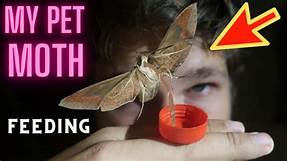What Do Pet Rabbits Need?
Rabbits make wonderful pets, but they do require some specific care to stay healthy and happy. Here are some of the things you need to know about what pet rabbits need to ensure they live a long, healthy, and happy life.

Habitat
1. Cage: Rabbits need a spacious cage that is at least 24 inches long, 18 inches wide, and 18 inches high. The cage should have a solid bottom to prevent your rabbit from chewing on the bars and injuring their feet.
2. Bedding: Rabbits need a soft, absorbent bedding material to keep them warm and comfortable. Good options include straw, shredded paper, or fleece blankets.
3. Litter Box: Rabbits are very clean animals and will naturally use a litter box if one is provided. Choose a litter box that is large enough for your rabbit to use comfortably.
Diet
1. Hay: Hay should make up the majority of your rabbit's diet. It is a good source of fiber, which is essential for their digestive system. Alfalfa hay is good for young rabbits up to 6 months old, but adult rabbits should be fed timothy hay.
2. Pellets: Pellets are a good source of nutrients for rabbits. Choose a pellet that is made from high-quality ingredients and does not contain fillers.
3. Vegetables: Rabbits love to eat vegetables. Good options include carrots, celery, spinach, kale, and broccoli. Vegetables should make up about 10% of your rabbit's diet.
4. Fruit: Fruit can be given to rabbits as a treat, but it should be given sparingly. Good options include apples, bananas, and blueberries.
Exercise
1. Playtime: Rabbits need daily exercise to stay healthy and happy. Allow your rabbit to play outside of their cage for at least 30 minutes each day. Supervise your rabbit during playtime to prevent them from chewing on electrical cords or other dangerous objects.
2. Toys: Rabbits love to play with toys. Good options include chew toys, balls, and tunnels. Providing your rabbit with toys will help to keep them entertained and active.
Health Care
1. Vaccinations: Rabbits should be vaccinated against common diseases such as myxomatosis and viral haemorrhagic disease. Talk to your veterinarian about which vaccinations are recommended for your rabbit.
2. Parasite Control: Rabbits can get parasites such as fleas and ticks. Talk to your veterinarian about the best way to prevent and treat parasites in your rabbit.
3. Grooming: Rabbits need to be groomed regularly to keep their fur clean and free of mats. Brush your rabbit's fur at least once a week, and more often if they have long hair.
Declaration: All article resources on this website, unless otherwise specified or labeled, are collected from online resources. If the content on this website infringes on the legitimate rights and interests of the original author, you can contact this website to delete it.






